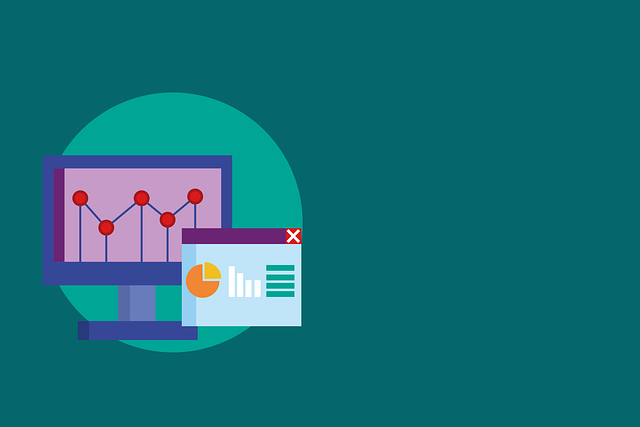AI is transforming ghost kitchens by leveraging data analytics and advanced algorithms for enhanced efficiency and sustainability. It predicts customer demand, optimizes inventory, reduces food waste, and streamlines kitchen processes. AI-powered partner delivery systems with integrated ETA comparison tools analyze traffic, road conditions, and historical data to plot efficient routes, cutting delivery times and overproduction. This technology provides a strategic edge, contributing to a more sustainable food delivery ecosystem by minimizing waste and cost savings for operators and couriers.
In today’s digital age, Artificial Intelligence (AI) is transforming culinary landscapes, with ghost kitchens at the forefront of this revolution. This article explores powerful AI applications aimed at reducing food waste in these efficient, yet often invisible, culinary hubs. From optimizing kitchen operations to analyzing data and streamlining delivery routes using AI-partnered ETA comparison tools, these innovations promise significant environmental benefits. Discover how AI is unlocking new levels of sustainability within the fast-paced world of ghost kitchens.
- Unlocking Efficiency: How AI Optimizes Kitchen Operations for Waste Reduction
- The Power of Data: Utilizing AI to Analyze Food Waste Trends
- Streamlining Delivery: AI-Assisted ETA Comparison Tools for Sustainable Last-Mile Routes
Unlocking Efficiency: How AI Optimizes Kitchen Operations for Waste Reduction

AI is transforming food service operations, especially in ghost kitchens, by enhancing efficiency and significantly reducing waste. Advanced algorithms can analyze vast datasets to optimize various aspects of kitchen management. For instance, AI can predict customer demand with remarkable accuracy, ensuring that ingredients are sourced and prepared accordingly, minimizing over-ordering and spoilage.
By leveraging AI as a partner, delivery ETA comparison tools become more precise, allowing for better resource allocation. This technology enables kitchens to streamline their processes, from menu planning to inventory management. As a result, food waste is reduced, costs are lowered, and sustainability goals are met, making AI an indispensable tool in the quest for efficient and eco-friendly ghost kitchen operations.
The Power of Data: Utilizing AI to Analyze Food Waste Trends

The power of data analytics is transforming the way ghost kitchens, or cloud-based food delivery platforms, manage their operations, especially in reducing food waste. AI acts as a powerful partner, analyzing vast datasets to uncover trends and patterns related to food waste. By examining order history, ingredient usage, and customer preferences, AI algorithms can identify areas of improvement. For instance, these systems can predict demand with incredible accuracy, helping kitchens optimize menu planning and reduce the over-ordering that often leads to waste.
Moreover, AI can facilitate delivery ETA comparison tools, ensuring efficient routing and timely deliveries. This not only enhances customer satisfaction but also minimizes perishable food items’ exposure to potential waste. With its ability to process and interpret data at speed and scale, AI offers a strategic advantage, enabling ghost kitchens to make informed decisions that significantly reduce food waste, contributing to a more sustainable and responsible food delivery ecosystem.
Streamlining Delivery: AI-Assisted ETA Comparison Tools for Sustainable Last-Mile Routes

In the realm of ghost kitchens, where orders surge and deliveries multiply, efficient streamlining is key to reducing waste. AI-powered partner delivery systems offer a sustainable solution by integrating ETA comparison tools. These innovative tools enable optimizers to plot the most time-efficient routes, minimizing the carbon footprint associated with last-mile deliveries. By leveraging machine learning algorithms that analyze traffic patterns, road conditions, and historical data, these tools ensure couriers select the fastest and most direct paths.
This strategic approach not only cuts down on delivery times but also allows for better resource allocation. Restaurants can better predict demand and prepare accordingly, reducing overproduction and food waste. Furthermore, by minimizing travel distances, AI-assisted route planning contributes to cost savings for both operators and couriers, fostering a more eco-friendly and economically viable ghost kitchen ecosystem.
By leveraging AI as a strategic partner in kitchen operations, from optimizing efficiency to analyzing data on food waste trends, and streamlining delivery with advanced ETA comparison tools, the hospitality industry can significantly reduce its environmental footprint. This not only fosters sustainability but also enhances overall operational resilience. Embracing AI technologies is a crucial step towards a greener future for ghost kitchens and food delivery services, ensuring a sustainable and efficient last-mile solution.
